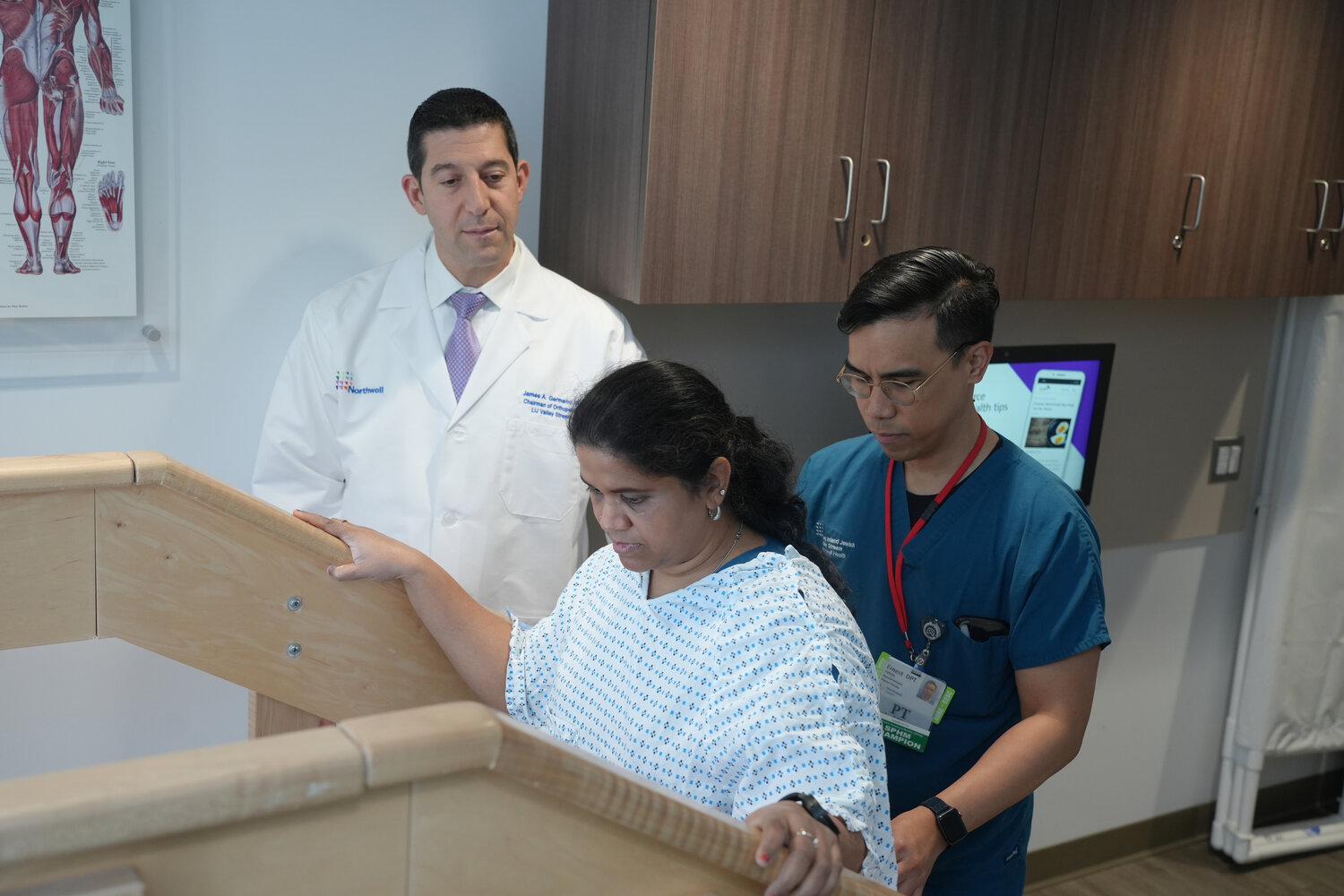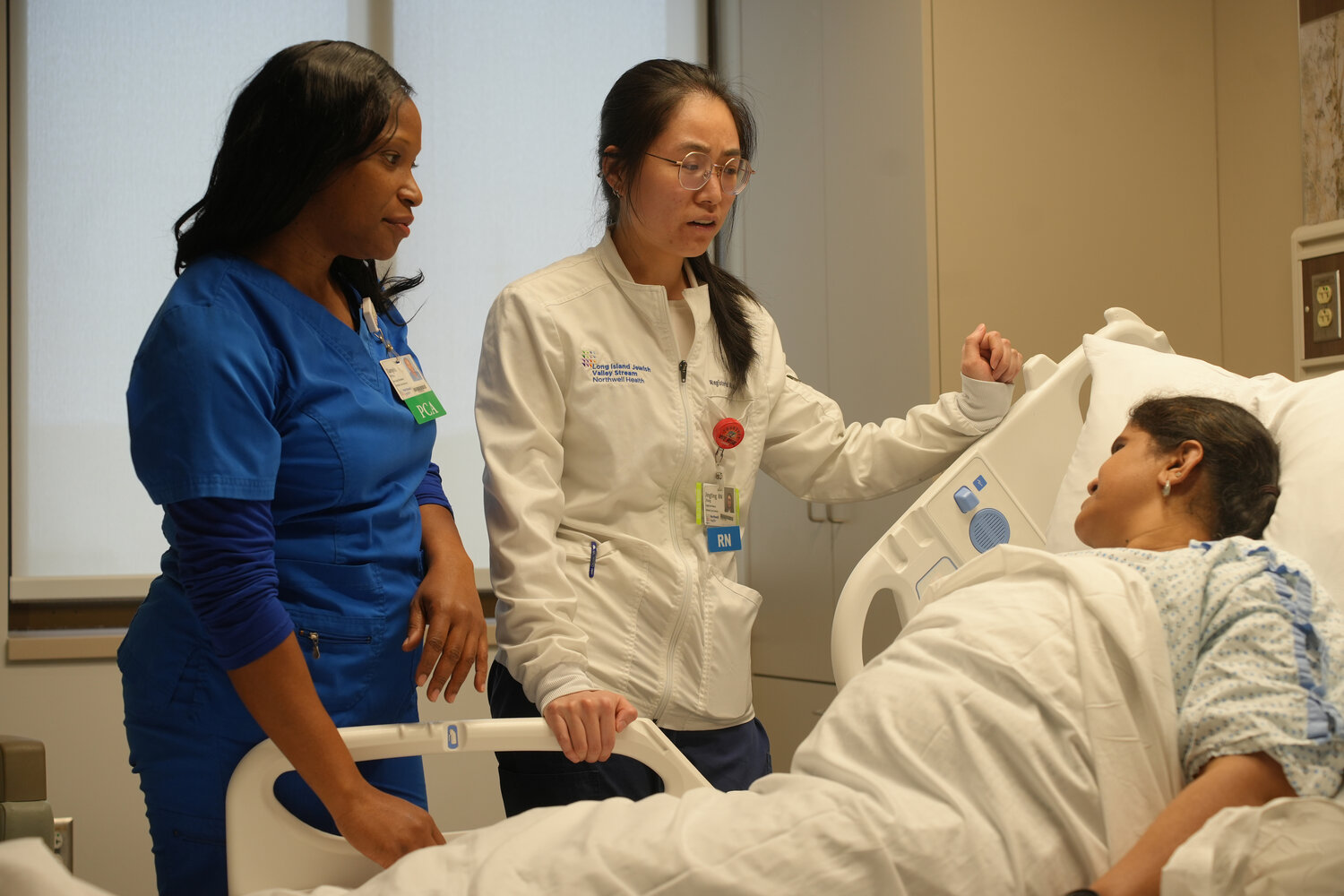Long Island Jewish Valley Stream Hospital leads the way in spine surgery. Here's why.
Last year marked another milestone achievement for the Northwell Health system making the list of 70 hospitals and health systems nationwide to receive national acclaim.
Northwell was named to 2023 list of “Hospitals and health systems with spine and neuroscience programs to know” by Becker’s Hospital Review.
As to the reason for Northwell earning a spot on the list, the medical industry trade magazine cites the recent inroads made by four Northwell hospitals in achieving rarified distinction in spine surgery. Among those four is Valley Stream’s own Long Island Jewish Valley Stream Hospital.
The hospital made groundbreaking efforts to meet the highest standards of spinal surgery excellence in 2022, earning advanced certification in spine surgery from the Joint Commission, an independent regulatory organization that sets standards for healthcare programs in the United States. It also became the first in the nation to rack up certifications for advanced total hip and knee replacement, total shoulder replacement, total ankle replacement, and hip fracture care surgeries all in the same year.
What led to success?
Several factors led to the hospital’s spine surgical success, according to Dr. Alfred Faust, Chief of Spine Surgery, but none more so than its tight-knit and collaborative working environment that is large enough to serve an adequate volume of patients but still intimate enough to give each one specialized attention.
“Because the operating room is so physically close to the floor that patients recover on and because we can navigate so easily through hospital space of this size that is so compact, all people involved with the patient’s care are in physical contact,” said Faust. “We interact face-to-face daily. It’s not just emails and phone calls and text messages, which is good, because fewer balls are going to get dropped that way.”
Rather than siloing medical staff on large separate floors or spacing them out in far-flung corners of the hospital, the hospital’s condensed design allows for open communication and frequent encounters. Medical professionals involved in each phase of a patient’s care are therefore placed in constant contact. And this, Faust argues, yields better results for the patient.
Small, intimate, and committed
“When all the important players see each other regularly and handle things in person, there’s a level of accountability, teamwork and autonomy that you can’t get when everyone is separated and interacting mostly online,” said Faust.
That open communication is both encouraged and expected, noted Jason Tan, executive director at Long Island Jewish Valley Stream Hospital.
The hospital culture places considerable importance on taking input from all medical disciplines regarding a patient’s treatment from surgeons to physical therapy and rehabilitation to nursing. It’s this “multidisciplinary approach” that brings “a well-rounded approach of care and better health outcomes for the patient.”
Tan also highlighted the hospital’s monthly performance improvement care group that relies on various health professionals across disciplines to churn out strategies and programs to enhance the patient experience.
Besides interactivity, the community hospital’s spine surgical division is also well-resourced, noted Faust, outfitted with the latest in spinal surgery technology and equipment.
“Just because we’re smaller than some other quote, unquote big city hospitals, doesn’t mean we have less of a budget,” said Faust. “At Valley Stream, we can spend on the latest and greatest technology while having a level of intimacy you can’t match in a bigger place.”
Dr. James Germano, Director of Orthopedic Surgery, noted that the Joint Commission did an extensive and methodical review of the spine surgery program, going over medical files, speaking with patients and staff, and observing surgery to evaluate whether the program’s practices matched their standards. It passed with flying colors.
“In our survey, we had no negative findings. Instead of doing something special for our reviewers, or having to prep for this, we’re always working for best practices, we’re always changing what we do and molding what we do to best practices nationally,” said Germano.“So really, our standard and our baseline is what we consider best practices. We were proud to see we were already doing everything the Joint Commission expected.”
Have an opinion on this article? Send an email to jlasso@liherald.com.

 66.0°,
Shallow Fog
66.0°,
Shallow Fog 







